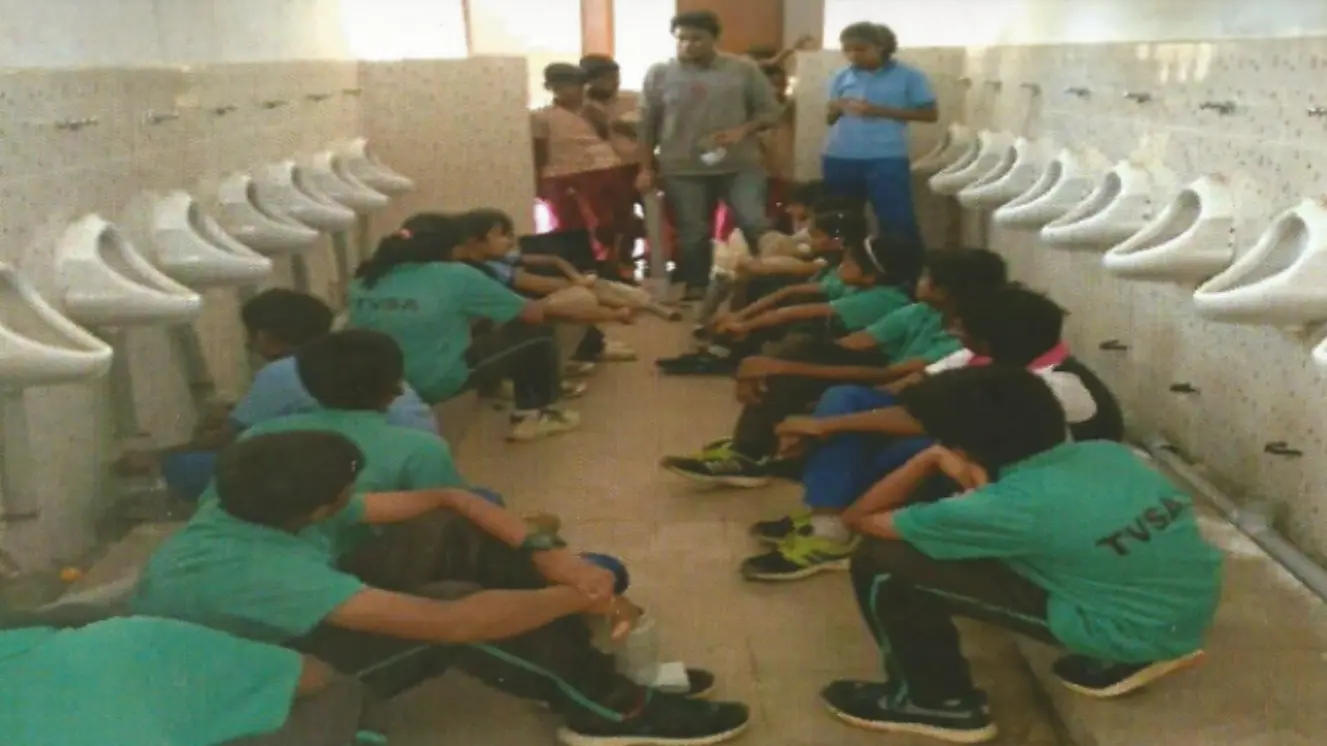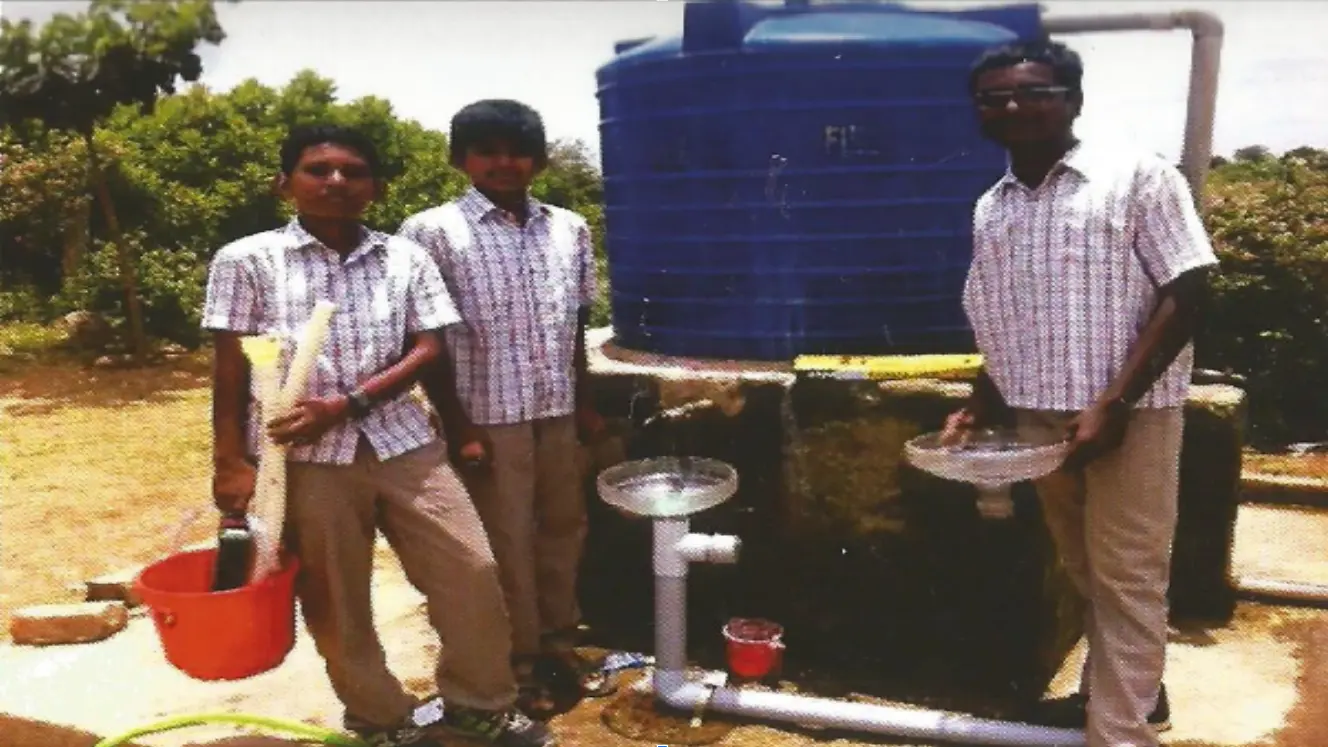Sanitary and Water Solutions in Government Schools
In 8th grade, some of the government schools faced significant sanitation challenges. There were no proper urinals or toilets, forcing students—especially girls—to endure an unhealthy environment. Girls lacked access to education about menstruation and sanitary hygiene, a topic often considered taboo in India. The consequences were serious, with students at risk of bladder infections and other health issues.
When Reap Benefit came to our school, my classmates and I joined forces with them to address these problems head-on. Together, we implemented sustainable, student-driven solutions:
- Installed Waterless Urinals: We crafted waterless urinals from everyday materials like plastic cans, table tennis balls, and mesh. This innovative approach required zero-cost materials and provided a much-needed hygienic facility for the students.
- Implemented Grey Water Harvesting: We set up a grey water harvesting system that recycled water from washbasins to irrigate the school’s plants. This initiative helped save 104,500 liters of water annually, promoting sustainability within the school.
- Repaired and Revamped Facilities: We repaired broken washroom latches, painted the facilities, and clearly designated separate boys’ and girls’ washrooms. These improvements made the environment safer and more comfortable for all students.
- Promoted Hygiene Practices: We encouraged our peers to wear slippers inside the washrooms, a critical habit to prevent infections and improve hygiene.
- Workshops on Menstrual and Sanitary Hygiene: We organized educational workshops for girls, breaking the silence around menstrual health and hygiene, and empowering them with essential knowledge.
The results were profound. These improvements led to a 12% increase in student attendance, as students felt safer and more motivated to come to school. The overall well-being and happiness of the students improved significantly, and we created an environment that supported both their education and health.
104500
Liters of Water Saved Annually
12%
Increase in Student Attendance
3
Workshops on Sanitary and Menstrual Hygiene


